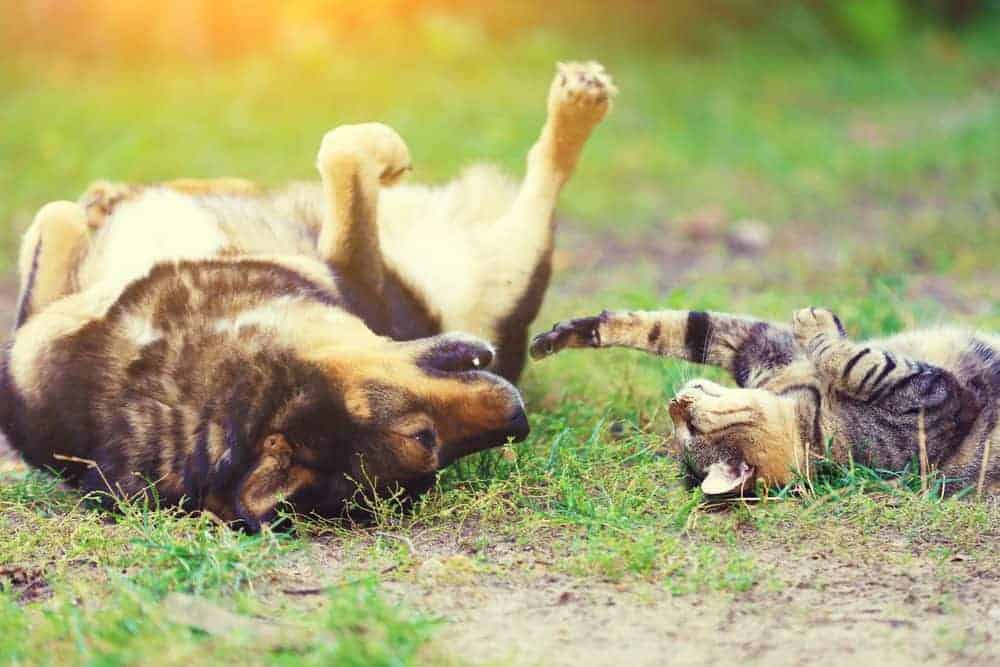
At long last, spring is on its way and, with the prospect of longer, sunny days and lots of outdoor adventures to enjoy, it’s the perfect time to take your pets to the vet for a health check.
Getting a physical once-over is very important because our pets can’t tell us that they have a problem such as earache, toothache, loss of vision or a pain in their tummy. It’s not until things have become more serious and owners notice outward signs – such as pets going off their food, bumping into things, becoming lethargic or yelping in pain – that it’s obvious that something’s not right. Regular health checks by your vet can catch problems early on, treat them more effectively and prevent your pet from suffering.
During your visit, your vet will check your pet's eyes, ears, nose and throat, mouth and teeth, heart, lungs, legs and paws, skin, abdomen, gastro-intestinal system, urinary system and check for any lumps and bumps. They will also ensure that vaccinations are up-to-date, check your pet’s weight and provide advice about worming, flea, tick and other parasite control and dental care.
How often should your pet be checked?
For most healthy pets in their prime, an annual visit is usually all that’s required. However, very young pets – whose growth and vaccination regime needs to be closely monitored – as well as pregnant, elderly, overweight pets and those with ongoing health problems, will need more frequent visits, which your vet will advise you of. Indeed, as your pet reaches middle age, vets can provide valuable advice on how to prevent problems as animals get older, rather than just trying to fix them when they occur.
Ask questions
Your vet will also be more than happy to answer any questions you may have about your pet’s general wellbeing, behaviour, exercise and diet, as these are all very important aspects of keeping your pet as healthy as possible. After all, a healthy diet and getting enough exercise are the basis of good health for humans and animals alike. Always raise any concerns you might have as, if your vet feels there may be an issue, they may suggest further investigation, such as blood tests or an x-ray.
Be proactive
All pets benefit from owners who take a proactive approach to their health. It’s well worth getting into the habit of regularly keeping tabs on your pet’s wellbeing and, if you notice anything that concerns you, visit your vet for expert advice as soon as possible. Here are some basic, regular checks you can follow.
Your pet check routine
- Body Once a week, while grooming, gently run your hands over every part of your pet’s body to check for lumps, cuts, inflammation and any signs of discomfort. Also look for any irritated areas of skin or loss of fur.
- Movement Watch the way your pet moves when he or she walks and runs. Does he or she ever seem stiff, overly tired, or have a limp? Coughing and excessive panting may also indicate there’s a problem.
- Weight Obesity causes all sorts of problems in pets, so get into the habit of weighing your pet once a month and, if things start to get out of control, seek advice sooner rather than later.
- Mouth Regularly look out for anything out of the ordinary. Check for growths and lumps and make sure teeth look clean and that none or loose or, in the case of small furries, overgrown, causing cuts and sores inside the mouth. If your pet has bad breath, this could mean they have a digestive problem.
- Eyes Your pet’s eyes should be clear with no excessive discharge of signs of irritation.
- Nose Keep an eye out for excessive discharge, sneezing and ensure that breathing is easy and unobstructed.
- Feet Regularly examine your pet’s feet for any cuts, grazes or growths, or excessively long nails. If you’re not confident at giving your pet’s nails a trim, your veterinary nurse will be able to do this for you.
- Ears Any signs of bad odour, swelling or irritation – which your pet might reveal by violently shaking their head – should be immediately looked at by your vet.
- Toilet Habits Anything out of the ordinary such as diarrhoea, constipation, blood or mucus or urine that is dark, cloudy or bloody should be investigated by your vet.
Sources: webvet.com, rspca.org.uk














